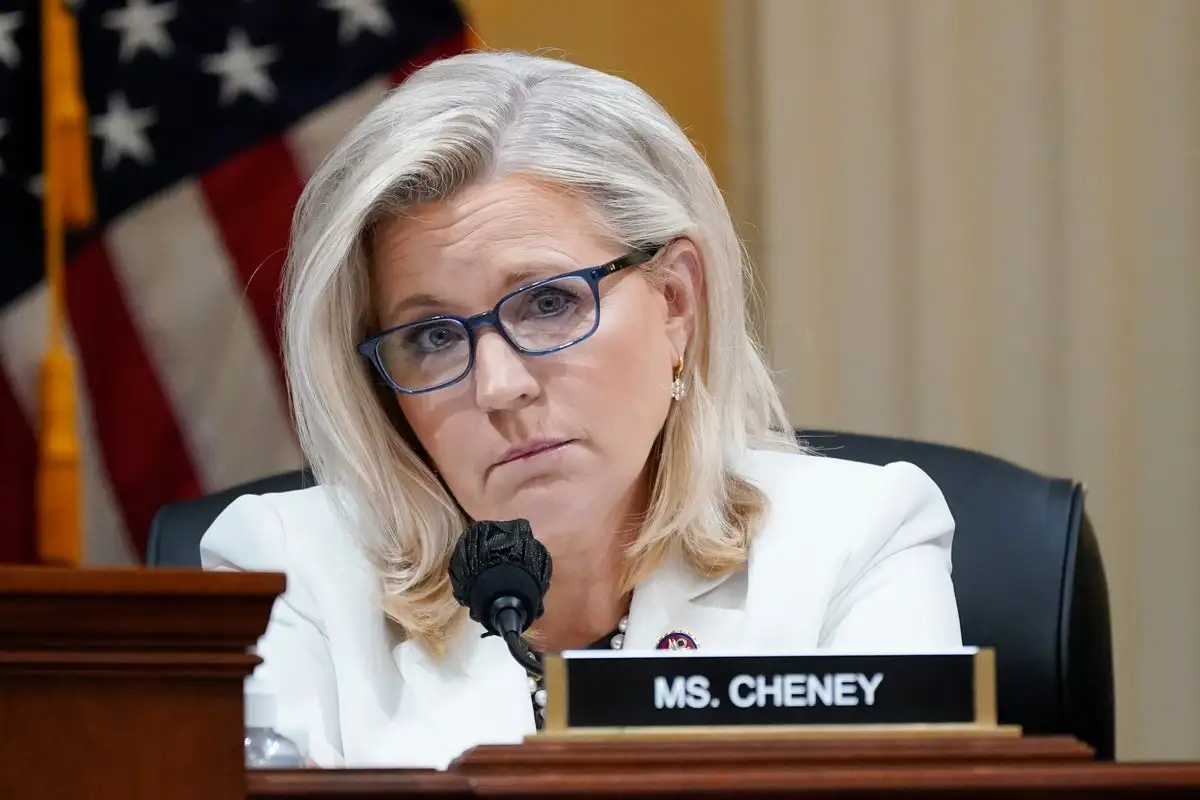
How does someone go from working in foreign policy to becoming one of the most talked-about figures in American politics—and on top of it all, draw significant attention to their personal net worth?
That’s the story with Liz Cheney.
Not just a name in the headlines, but the daughter of a former Vice President and a force in her own right.
People are curious, not just about what she stands for—but where she stands financially.
And to be honest, it’s hard to separate the Cheney financial story from the political one.
Because in this world, legacy, connections, and influence can shape more than just a politician’s decisions—they shape their bottom line too.
With massive fundraising records and a front-row seat in historically pivotal moments like the January 6 Committee, Cheney hasn’t just been making policy—she’s been building a brand.
In this article, we’re going to dive into how Liz Cheney built her wealth, what her political trajectory looked like, the impact of her iconic family name, and how it all weaves together into one of the most closely-watched financial profiles in U.S. politics today.
Liz Cheney Biography And Early Life
Liz Cheney didn’t exactly walk into politics like a newcomer. She was born into it—on July 28, 1966, in Madison, Wisconsin.
Her father was Dick Cheney, the man who would go on to serve as Vice President of the United States under George W. Bush.
Her mother, Lynne Cheney, is an accomplished author and respected conservative voice.
This isn’t your average “daughter of a politician” storyline.
This is legacy—pure political pedigree.
She spent her early years in both Wyoming and Washington, D.C., shaping her understanding of rural American culture and insider politics at the same time.
Now, let’s zoom in on the credentials not in the bloodline.
She earned her undergraduate degree from Colorado College and went on to get a law degree from the University of Chicago.
So yeah, brainpower to match the last name.
Before running for office, Cheney worked as an attorney and later as a consultant and analyst for the State Department.
She didn’t just pop up out of nowhere—she built a resume in national security before deciding to throw her hat into the electoral ring.
Her early career carved out expertise that would later justify her leadership within Congress.
And it all started with a family name, a top-tier education, and time spent inside the wire of U.S. foreign policy.
In short, she didn’t just inherit a name—she earned a seat at the table.
Liz Cheney Political Journey: Rise In U.S. Politics
Cheney wasn’t satisfied standing on the sidelines of politics.
During the George W. Bush years, she took on significant roles inside the U.S. State Department.
Serving as Deputy Assistant Secretary of State for Near Eastern Affairs, she specialized in Middle East policy—including democracy promotion in volatile regions.
It was hands-on, high-stakes, and truth be told, not a bad training ground for what came next.
In 2016, she ran for Wyoming’s sole seat in the U.S. House of Representatives—and won.
She held this seat from 2017 to 2023, becoming not only a representative but one of the highest-ranking women in Republican leadership.
By 2019, she was Chair of the House Republican Conference—the party’s third-highest seat in the House.
Here’s where it gets really real:
She didn’t just play the party line.
When January 6 happened, and many leaders remained silent, Liz Cheney didn’t.
She stepped up as Vice Chair of the House Select Committee on the January 6 Attack.
It wasn’t a move without consequence.
Her sharp criticism of Donald Trump put her political career on the chopping block.
And eventually, in 2022, it cost her the Republican primary in Wyoming.
Harriet Hageman—endorsed by Trump—took the win.
But Cheney didn’t vanish.
You can lose a seat and still hold influence.
In 2025, she was awarded the Presidential Citizens Medal by President Joe Biden and even earned a Nobel Peace Prize nomination.
So what’s the throughline here?
She didn’t just build a political career—she shaped it with bold, high-risk decisions that echoed far beyond Wyoming’s borders.
Legacy Of The Cheney Family In U.S. Politics
Before you understand Liz, you’ve got to understand the dynasty.
Dick Cheney isn’t just her father. He’s one of the most powerful Vice Presidents in U.S. history.
He also served as Secretary of Defense, White House Chief of Staff, and had deep roots in defense policy during critical decades.
And Lynne Cheney?
She’s not just a political spouse—she has her own powerful presence as an intellectual, former chair of the National Endowment for the Humanities, and an author.
That backdrop isn’t just impressive—it’s influential.
Growing up with access to high-level political discussions at the dinner table? That changes your wiring.
It puts strategy and power into your everyday vocabulary.
And that’s what gave Liz Cheney the mindset she brought into public service.
But let’s not assume legacy is everything.
Even with a name like Cheney, you don’t rise unless you deliver.
Still, the family reputation has undeniably opened doors.
From foreign policy to Congress, her last name gave her a platform—but her skill gave her staying power.
Here’s a breakout visualization of the Cheney family’s political positions:
| Family Member | Role | Years Active |
|---|---|---|
| Dick Cheney | Vice President of the United States | 2001–2009 |
| Lynne Cheney | Author and Public Intellectual | 1970s–Present |
| Liz Cheney | U.S. Representative for Wyoming | 2017–2023 |
- The Cheney name holds weight in conservative circles.
- Political access and insider insight came early for Liz.
- This foundation shaped her persistence—and political risks.
Exploring Liz Cheney’s Financial Profile
When people hear the name Liz Cheney, they often think politics: Wyoming, Congress, and January 6 hearings. But behind her public role, there’s big curiosity about her finances. With the keyword liz cheney net worth gaining traction, many want to know: how does she stack up financially among her peers?
While Cheney hasn’t publicly disclosed her exact net worth, her career spans law, government, and politics — each playing a role in shaping her financial profile. She served as a U.S. Representative from 2017 to 2023 and held influential roles such as House Republican Conference Chair and Vice Chair of the January 6 Committee. These aren’t just titles; they typically come with decent government compensation, notable influence, and opportunities that extend beyond base salaries.
Now, comparing members of Congress is tricky. Most draw a government salary — roughly in the $170,000 ballpark. But the real variation comes when you look beyond the paycheck.
- Campaign fundraising: While not personal income, successful campaigns give politicians financial edge and exposure. Cheney raised over $7.1 million in 2021 alone — higher than many peers.
- Public speaking: With the spotlight on her post-Jan 6 stance, speaking engagements likely followed. These often come with sizable fees.
- Book deals: Like many high-profile politicians, Cheney could negotiate a high-value publishing contract, particularly given recent attention on her political courage and legacy.
There’s also the family angle. Being the daughter of former Vice President Dick Cheney, she’s part of a political legacy with deep roots in Washington — and potentially deep access to wealth, connections, and prestige-based income streams. That doesn’t directly reveal Cheney’s net worth, but it adds weight to the speculation.
It also begs a fair comparison: how does she measure up to others — especially women in politics? Compared to someone like Nancy Pelosi, with decades in office and major assets, or Nikki Haley with corporate board experience and book sales, Cheney keeps her cards closer to her chest. But make no mistake, her financial trajectory shows a blend of influence, savvy, and high-stakes positioning that puts her in a similar orbit of financial strength.
All signs suggest she’s not just financially stable — she’s playing in a league where public impact and net worth often travel hand in hand.
Detailed Asset Breakdown
For anyone trying to pin down liz cheney net worth, the clearest place to start is her public financial disclosures. As a member of Congress, Cheney was required to report her personal assets, income sources, and liabilities annually. While the exact dollar amounts are disclosed in ranges, the filings give insight into the types of assets she holds.
Her records show investments across mutual funds and retirement accounts, which is typical for many lawmakers. There isn’t any flashy real estate empire or single asset that sets her apart — but a pattern of cautious, stable financial choices in line with her professional persona.
That said, where things get interesting is with her campaign finance data. Cheney’s 2021 fundraising efforts drew national attention when she pulled in $2.05 million in just the last quarter — her highest yet. Over the course of that year, her campaign topped $7.1 million in donations. That’s more than money — it’s a signal of backing, trust, and clout. It put her well ahead of her Republican primary challenger at the time.
Campaign funds are firewalled from personal income but speak volumes about influence and staying power. The ability to raise that kind of cash, especially post-leadership ouster, shows just how financially compelling her politics are to donors.
When it comes to personal investments or partnerships, public data doesn’t reveal anything particularly controversial or elaborate. That means few private businesses, side hustles, or major financial stakes — at least ones that require disclosure. What it does reflect is consistency: legal work, government roles, and family legacy have provided a strong financial foundation without the need for celebrity-style ventures.
It’s also worth spotlighting the scrutiny that public figures like Cheney are under. Every dollar, investment, or paid engagement carries potential for backlash — especially in the polarized political landscape. Transparency isn’t just a requirement, it’s a necessity. And in Cheney’s case, her disclosures suggest a woman who has kept her finances clean, steady, and largely scandal-free.
Wealth in politics accumulates through years of strategic moves — a mix of roles that open paths to advisory positions, speaking circuits, and opportunities beyond Capitol Hill. Cheney’s career path, punctuated by high-stakes moments and national visibility, puts her squarely on that path. She’s not just finishing chapters — she’s likely just starting new ones financially.
Analysis of Prominent Political Figures’ Net Worth
Comparing liz cheney net worth with other political heavyweights provides more than just a numbers game — it uncovers the patterns that define financial rise in Washington. Her relative silence about exact figures places her in a middle tier: not among the ultra-wealthy like Mitch McConnell with deep investments, but neither scraping the base salary of junior legislators.
The broader trend among conservatives? Slow and steady accumulation. Fundraising success, carefully chosen boards, and post-office ventures are the playbook. Like Cheney, figures such as Paul Ryan have parlayed their Congressional reputations into lucrative positions once out of office.
Then there’s the dynasty factor. It’s not just about name recognition — it’s about built-in access. For someone like Liz Cheney, whose political roots run to the Vice Presidency, the path is paved with capital both political and financial. Legacy often means doors are open before you’ve knocked, and wealth tends to follow closely behind.
So, while her net worth might not be plastered across headlines with eye-watering figures, the trail she’s on suggests a continued rise. Not just in influence, but in financial security too.
Public Figure Wealth Analysis: Scrutinizing Financial Stature Amid Political Controversies
People want to know where the money goes—and who holds it. The internet age has put every politician under a magnifying glass, and when someone like Liz Cheney makes waves, questions about her net worth are not far behind.
This kind of public curiosity isn’t new, but the speed and intensity have changed. Whether it’s from social media sleuths, watchdog groups, or political rivals, there’s one truth: if you’re in politics and high-profile, your bank balance is part of the conversation.
Transparency laws demand that members of Congress disclose financial assets, liabilities, stocks, and income sources. But there’s a catch—these disclosures are broad, using ranges instead of exact figures. So for someone trying to get a real handle on Liz Cheney’s net worth, the official filings offer just a sketch, not a blueprint.
Cheney didn’t just sit still when political heat pressed in. Her high-profile stance against Donald Trump—especially as part of the January 6 Committee—put her under the spotlight financially, too. But she stood her ground. No theatrics, no dodging. She complied with financial rules and kept the spotlight on her mission, not her wallet.
And yet, the demand for full clarity grows louder. Voters want more than legal minimums—they want to feel their leaders have nothing to hide. That pressure hits hard when you’re a lightning rod for political uproar. It’s why financial topics like “Liz Cheney net worth” trend when the political tides shift.
The Female Political Leaders’ Net Worth Debate
There’s a double standard in politics—especially when it comes to money. Female leaders don’t just get hit with the usual questions. Their wealth is picked apart in ways male counterparts rarely face.
In the U.S., gender-based wealth gaps don’t stop at Wall Street—they show up in Congress, too. Fewer women make it to high-powered donor circles. And when they do? They’re hit with judgment for how they got there. The irony? Many of these critics turn a blind eye when men accumulate wealth just as fast—or faster.
Liz Cheney didn’t play the usual game. With a law degree and serious roles in the State Department, she didn’t inherit her profile—she earned it. Yes, her family name carried weight. But her financial standing didn’t materialize out of nowhere. That’s decades of work on policy, law, and political strategy.
What makes Cheney’s story powerful is that it reshapes the conversation around female financial power in conservative circles. Instead of shrinking from wealth discussions, she faced them—while pushing for constitutional integrity, not personal gain.
Liz Cheney’s Impact on U.S. Politics and Beyond
Love her or not, Liz Cheney left a deep mark on American politics. Her rise wasn’t just about carrying the Cheney name—it was about charting her own course through policy, leadership, and hardline choices.
As Vice Chair of the January 6 Committee, Cheney stood in a furnace most politicians would run from. She chose country over party. Constitution over career. That move cost her political standing, but it won her something else: credibility.
Her stance against Trump didn’t just echo in press conferences—it shaped political discourse for months. Even those who disagreed with her had to admit—Cheney was consistent. No playing both sides. No sugarcoating.
She’s also become a kind of blueprint. For conservative women who want to lead—without compromising principles—Liz Cheney cracked the ceiling.
- In 2025, she was awarded the Presidential Citizens Medal by President Biden.
- That same year, she was nominated for the Nobel Peace Prize—for, of all things, defending democracy.
Those aren’t ceremonial decorations. Those are reminders that her impact wasn’t just political, but foundational.
She’s a lightening rod, yes. But also a reference point for what’s possible when personal wealth, political caution, and national loyalty collide.
Conservative Political Legacy and the Financial Element
The Cheney family is conservative royalty. That status doesn’t just open doors—it builds long-term influence and financial durability. That’s the unspoken truth behind dynasties—they leverage political power into financial resilience, and vice versa.
In conservative circles, wealth isn’t just a sign of success—it’s a tool. It shapes policy, funds campaigns, and helps frame the idea of “American values” in dollar terms.
Liz Cheney’s financial story is tangled in all of this. Her time as a lawyer, policy leader, and member of Congress built her personal blend of money and might. Yet she never leaned solely on inherited networks. Her campaign raised over $7 million in 2021 alone, outpacing challengers by miles.
All of which is to say: Cheney didn’t ride her family’s shadow—she expanded it. And that folds into the bigger story of conservative legacies. They’re not just about ideology—they’re about creating systems of influence, supported by resources, passed down between generations.
It’s how the Cheneys stayed relevant. It’s how Liz rewrote what it means to be a financially powerful woman in a traditionally male, and monetized, corner of power.





